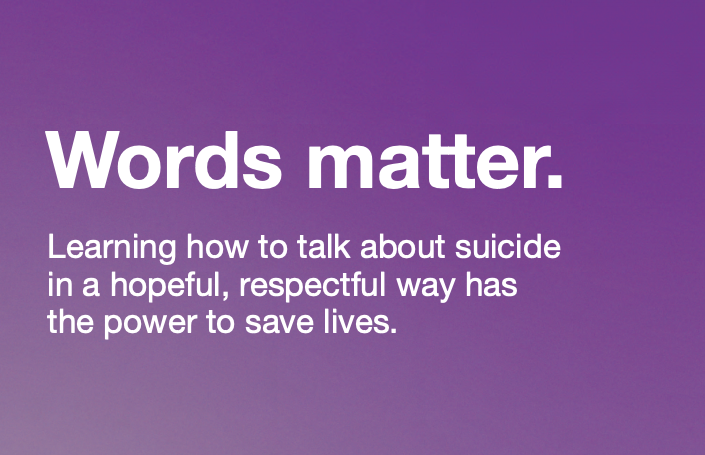Each week, ICBA’s Jordan Bateman reflects on what we’ve learned as we participate in ICBA’s Workplace Wellness Program. This program is free for all ICBA members – check out icba.ca/wellness for details.
As our month-long look at Mental Health Stigma comes to an end, I found one of the resources from the Centre for Addiction and Mental Health (CAMH) to be especially interesting: a language guide to talking about mental illness and suicide (especially helpful for someone like me, who works in communications).
The general guidelines:
- Be hopeful, encourage people to seek help, be direct.
- Don’t reinforce stereotypes or prejudice, don’t define people by their diagnosis.
From the document: “The unfortunate reality is that many stigmatizing phrases and ways of talking about suicide have been ingrained into our vocabulary. Even the most dedicated supporters of the mental health movement may find themselves slipping up from time to time, and that’s okay. This does not make you a bad person—it makes you human. If you catch yourself using problematic language about suicide or mental illness, correct yourself out loud. By letting those around you know why your words were harmful, you can turn the conversation into a positive learning experience for everyone involved. If we all put in this effort, we will see a fundamental shift in the way society addresses these issues.”
This is something we have talked about within ICBA. As we launched our Workplace Wellness program, we have challenged ourselves to rethink our preconceptions, language, and attitudes around mental health. We’re not perfect, but we’re making progress.
ICBA’s Workplace Wellness Program is helping more than 50 companies, and thousands of construction professionals, better understand mental health. The program is free for ICBA members — see icba.ca/wellness.

